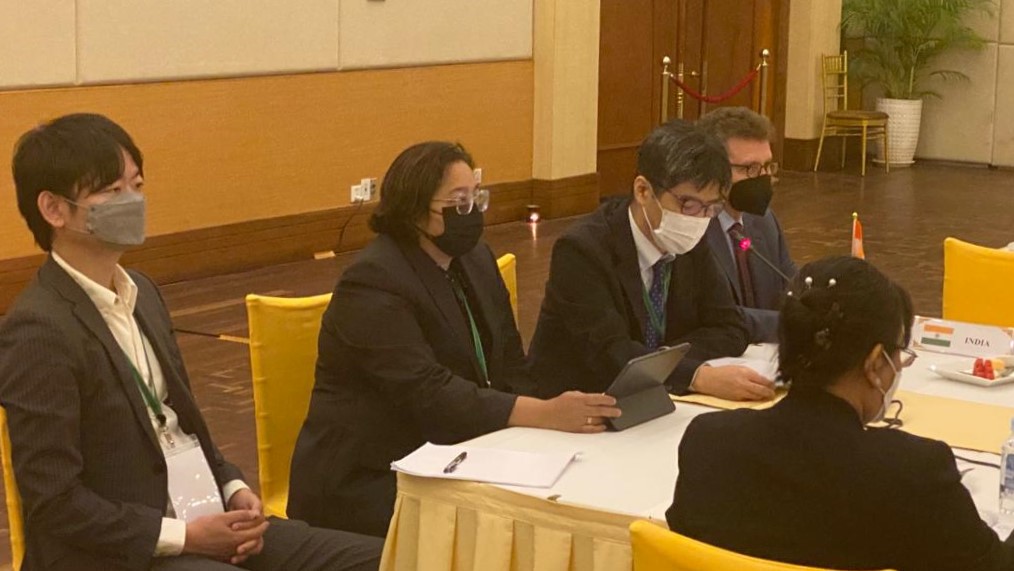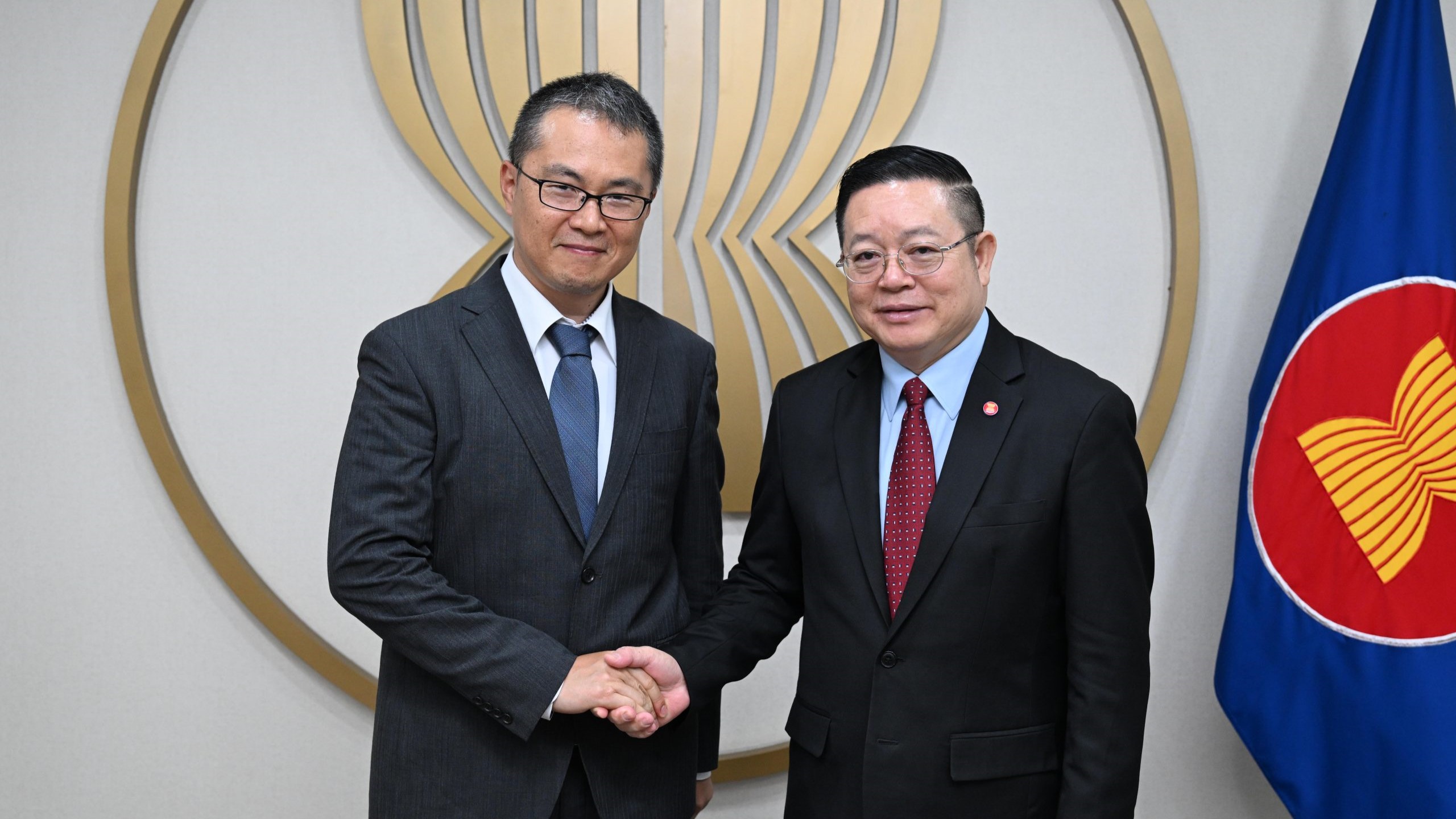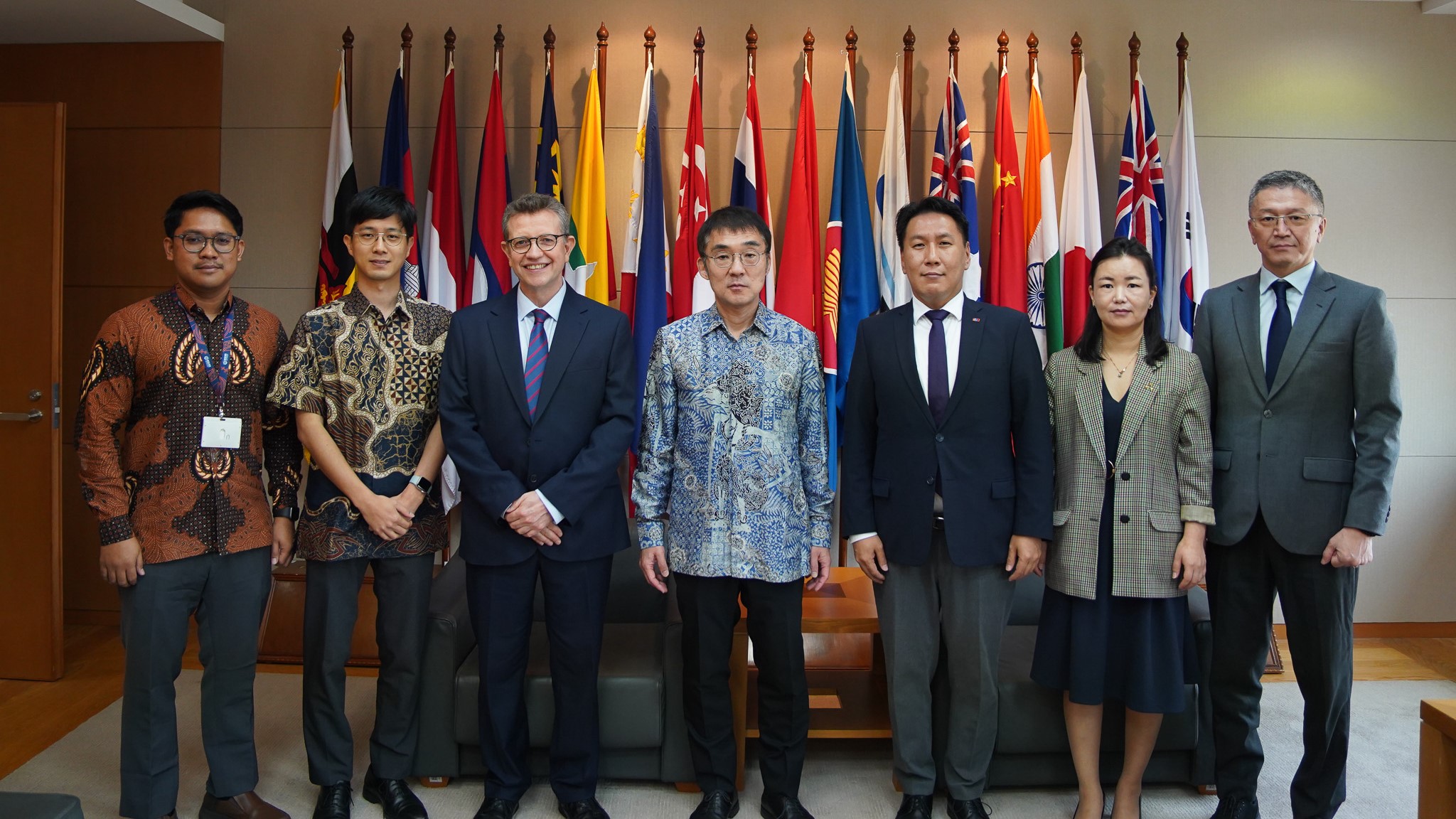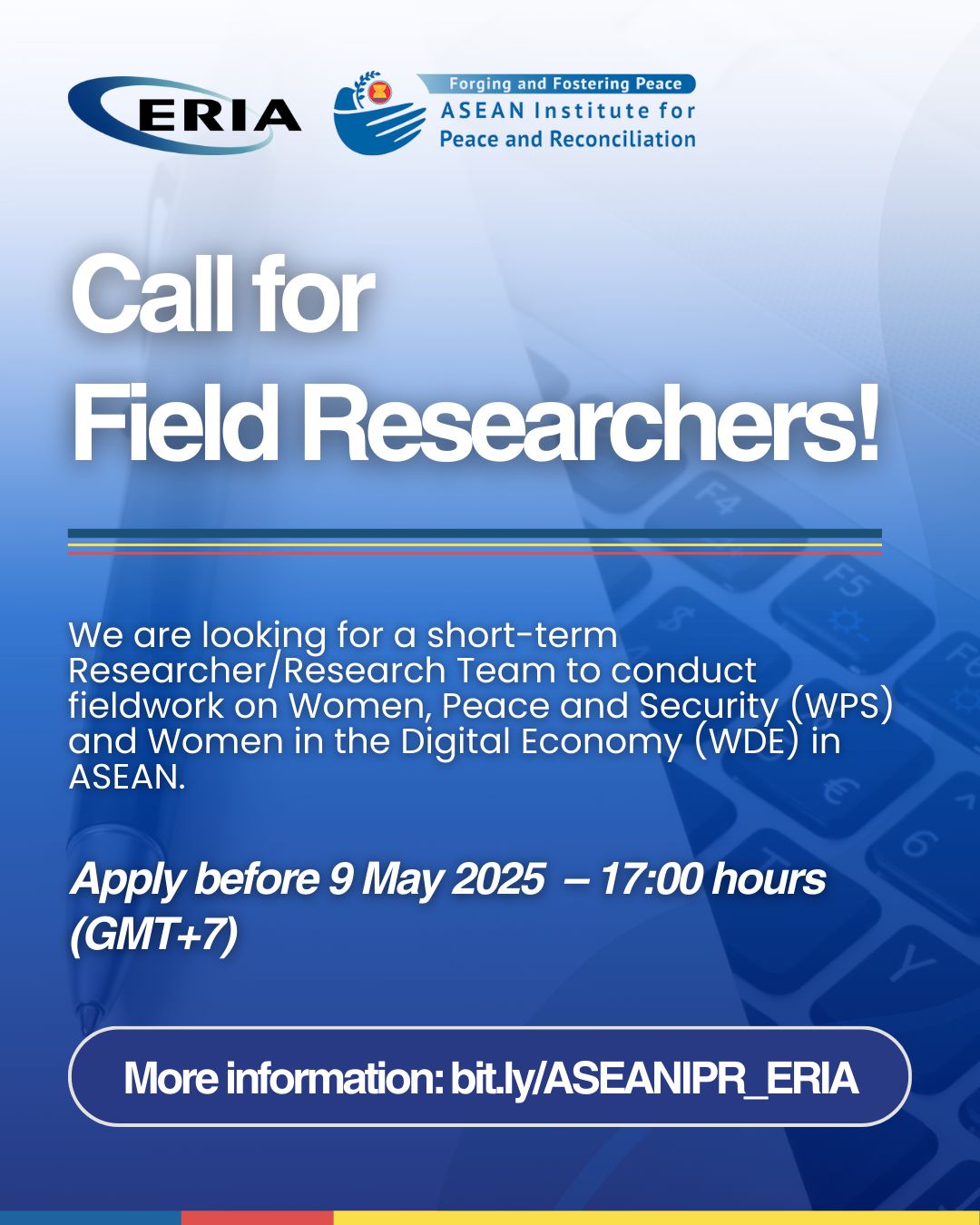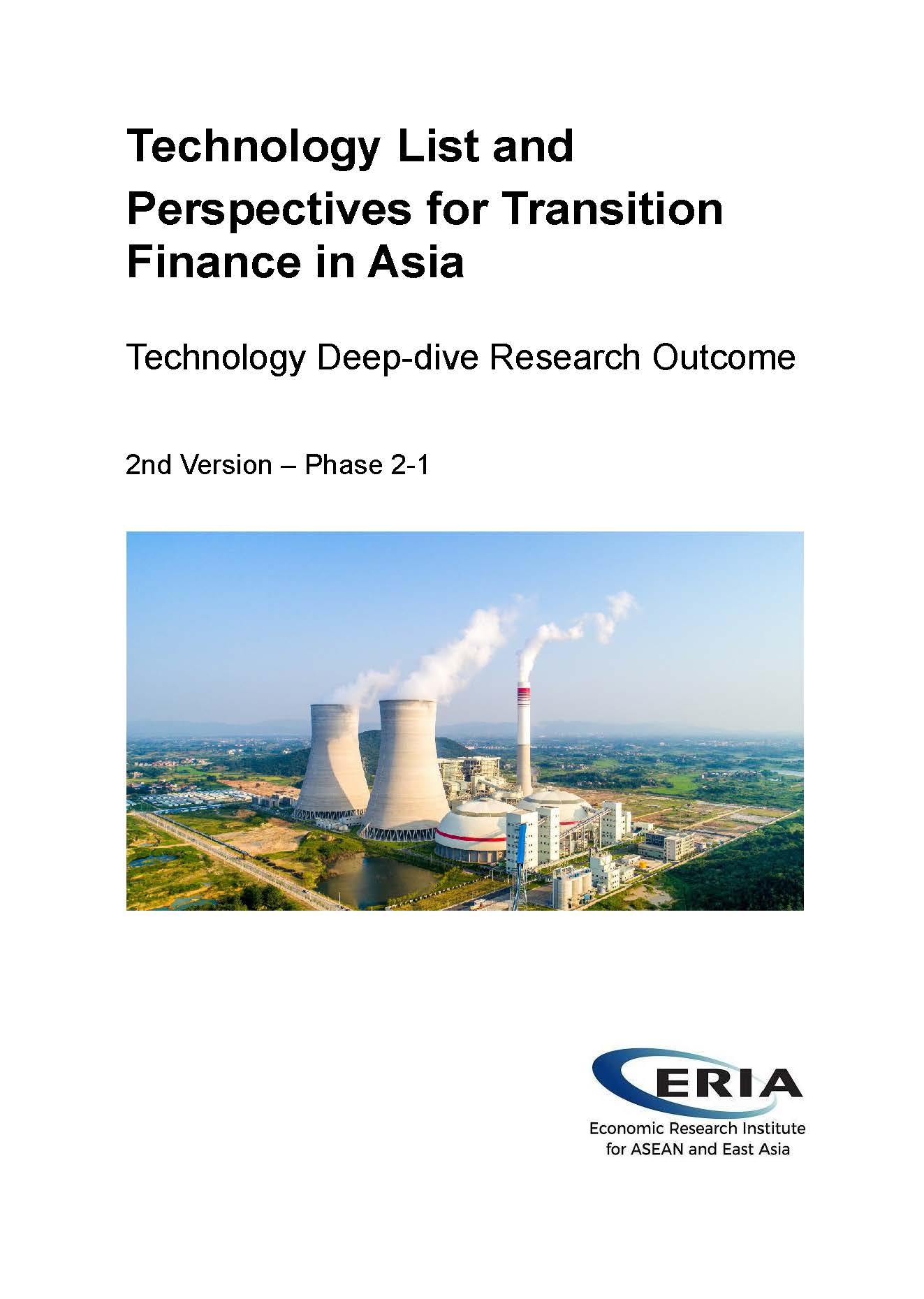ERIA Presents, East Asia Post Pandemic - An Integrative, Innovative, Inclusive and Sustainable Region through Digitalisation, at the EAS Senior Economic Officials’ Meeting
Share Article:
Print Article:
Siem Reap, 6 August 2022: ERIA presents at the Third Meeting of the ASEAN Senior Economic Officials for the Fifty-Third Meeting of the ASEAN Economic Ministers (SEOM 3/53) and Related Meetings, held from 31 July - 7 August 2022 and chaired by H.E. Director General Rath Saravuth of the Cambodian Ministry of Commerce. Mr Koji Hachiyama, ERIA’s Chief Operating Officer, presented, ‘East Asia Post Pandemic – An Integrative, Innovative, Inclusive and Sustainable Region through Digitalisation’, at the 11th SEOM-EAS East Asia Summit Senior Economic Officials’ Meeting (SEOM-EAS) Consultation held on 6 August 2022. The paper constitutes part of ERIA’s on-going research to support efforts to strengthen regional economic integration post-pandemic.
Mr Hachiyama’s presentation highlighted the importance of leveraging digitalisation to recover quickly from the COVID-19 pandemic and to move forward in a way that supports an inclusive, innovative, inclusive and sustainable Asia. The presentation emphasized: (1) the importance of institutionalising governance structure for consistent implementation; (2) developing digital infrastructure, supporting start-ups and human capital for promoting supply chain resilience; (3) reforming the regulatory framework for digital transformation and facilitation of digital trade; (4) need for more public-private coordination including standardization of data sharing; and (5) enhancing collaboration in ICTs security.
On 5 August, prior to the SEOM-EAS, ERIA participated in the ASEAN Plus Three Senior Economic Officials Meeting. At the meeting, Dr Keita Oikawa presented the progress of the ‘ASEAN Plus Three Research Project for Closing Digital Divide in MSMEs’. The presentation reported several findings from interviews with ASEAN government officials, digital solutions service providers and MSME digital service users. The findings noted: (1) MSMEs’ digital adoption is more focused on sales and marketing function; (2) Covid-19 expedited the adoption of digital sales and marketing functions; (3) a lack of internet infrastructure and supporting services in rural area in relatively lower income countries; (4) IT skills and business knowledge remain issues for MSMEs digitalization; (5) MSMEs tend not to care about cybersecurity risk; (6) foreign digital solutions service providers need to collaborate with local governments and/or experts to support MSMEs’ digitalization; and (7) manufacturing sector needs IT experts familiar with manufacturing businesses and technologies.
